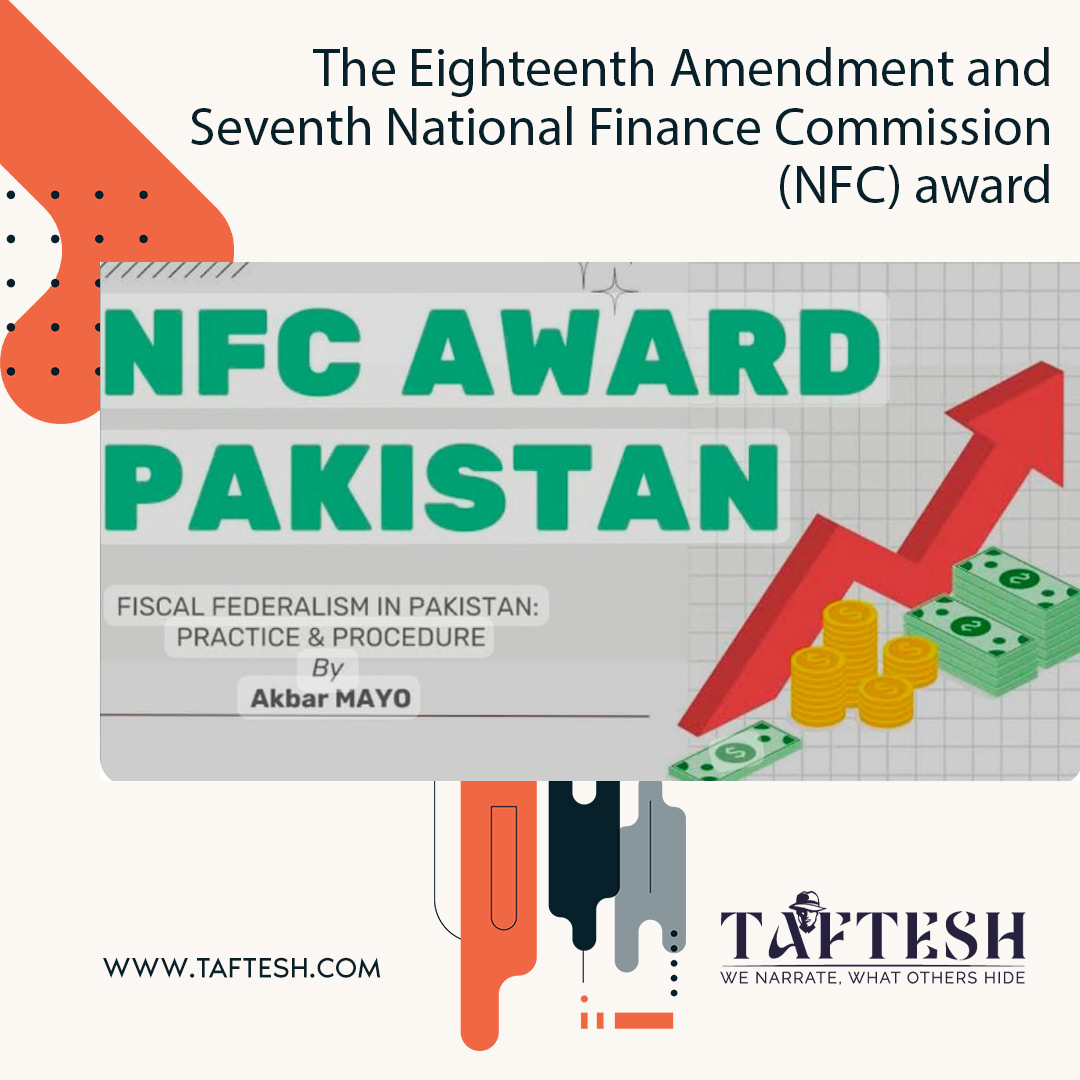Balancing Provincial-Federal Dynamics or Impeding National Prosperity?
The Eighteenth Amendment, a landmark in Pakistan’s political history, was enacted in April 2010 to fortify the bond between provinces and the federation. This significant move, spearheaded by political parties mainly Pakistan Muslim League (N) and Pakistan Peoples Party, aimed to enhance provincial autonomy and foster collaboration between the federal and provincial governments.
One of the pivotal changes brought about by the amendment was the revision of financial distribution, whereby provinces contributing to the National Consolidated Fund (NCF) received an increased share, rising from 52% to approximately 57%. This adjustment provided provinces with greater financial autonomy to meet their expenditures.
However, since its inception, the Eighteenth Amendment has faced challenges, some quarters have proposed alterations to the amendment, potentially diminishing the protections it affords in financial distribution. The federal bureaucracy, has expressed discontent with the limited powers and resources delegated to provinces.
Under the amendment, Article 160, Clause 3-A stipulates that the provinces’ share from the distribution pool cannot be reduced from the previous award. This safeguard ensures that the 57.5% share allocated to provinces in the seventh National Finance Commission (NFC) award remains intact.
Attempts to amend the Eighteenth Amendment have surfaced, notably in July 2020, when the MQM proposed changes to Article 160. The proposal, however, was rejected in the Senate.
Recently, Dr. Waqar Masood Khan, the adviser to the prime minister on finance, criticized the NFC award and expressed a desire for its review, reflecting a centralist perspective.
Surprisingly, the Muslim League (N), which has previously been taking credit of this amendment and calling it its political success, now opposing its key features.
PML (N) is discussing that some changes in the 18th Amendment should be made a part of Party’s election manifesto. Some important people of the Nawaz League want to reduce the protection given to the financial distribution between the federation and the provinces as a result of the 18th amendment; apparently to please the said powerful circles and to pave the way to much waited power.
Though the Nawaz League denied it after the news came out, but after some days, the former finance minister of the Nawaz League, Ishaq Dar, speaking in the Senate, shared his views about this issue to change the financial distribution between the federation and the provinces.
Critics argue that the focus on amending the amendment distracts from addressing financial mismanagement within federal government’s different departments specially of its corporations. These entities contribute significant annual losses to exchequer, with institutions like PIA, Pakistan Railways, and others draining public finances. Calls for amendment detract from the need to address the inefficiencies within these federal entities.
The Eighteenth Amendment sought to decentralize power by transferring key departments to provinces. However, reports indicate that the central bureaucracy in Islamabad maneuvered to retain control by renaming and reclaiming several departments. This maneuvering added unnecessary burdens to public finances, undermining the intended decentralization.
While the Eighteenth Amendment aimed to strike a balance between provincial and federal powers, challenges persist. Efforts to amend the amendment should be critically examined, considering the broader context of financial mismanagement within federal entities. Addressing inefficiencies and upholding the principles of the amendment are crucial for fostering a more equitable and prosperous national landscape in Pakistan.
